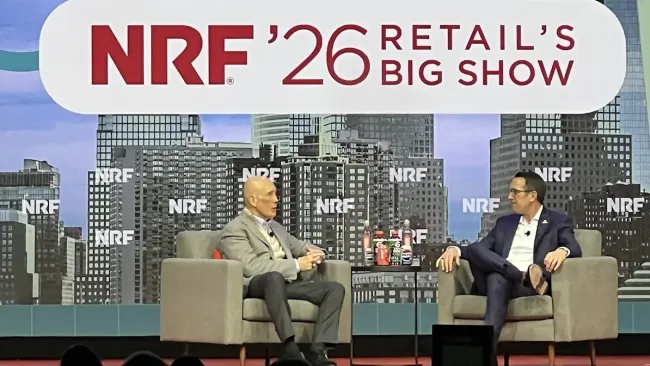The holiday season is fast approaching, and many organizations are anxious about what’s around the corner. This time of the year retailers are faced with waves of customers craving new products, holiday sales, and returns that can overwhelm customer support. To boot, the so-called “retail-apocalypse” has brought some anxiety to the industry, where traditional retailers face pressure from new competitors and online shopping.
The best way to face the storm is through preparation and care for the best employees possible. Surviving in this evolving retail environment is about hiring and effectively maintaining highly skilled customer support associates during the busy holiday season.
Regardless of the digital advances seen in customer service, in the end it’s genuine human care that saves the day. That’s because the impressions your associates provide go a long way toward customer satisfaction, engagement, and long-term brand loyalty. “The customer spends 98 percent of interactions with a brand after the sale,” said Josh Ives, vice president of customer experience at Samsung Electronics. It’s essential that even temporary holiday staff deliver on the brand promise during service interactions.
No matter how much you plan and prepare, it’s critical that a company be ready for unexpected surges in interaction volume or unexpected issues to arise during the holiday period. Even in these last quiet days before the holiday rush, there are ways to set yourself up to adjust to unanticipated support issues.
Expect the unexpected
We understand that when preparing for the holiday season it’s going to be stressful and an emotional experience. That’s where genuine care and preparation can really shine through. To put it simply, it feels good for customers to know that someone on the other end cares.
We at TTEC have a four-part methodology for handling customer surges without overwhelming associates:
- Plan ahead: Too many businesses aren’t ready for disaster when in strikes, and when it does they throw money at the one particular problem. Until it gets worse, organizations need to reassess themselves on what they are going to do when disaster strikes. For example, are you going to use staffing services, outsourced vendors or both? Or what resources do you need or have internally?
- Have a retainer: Again, it’s about planning in advance. Organizations who work with partners need to have an agreement in place before the disaster may arrive. This means you both understand the work, customer experience, and hiring profiles needed for the industry.
- Optimize your workforce: Your organization should consider the volume and level of help needed for various interactions during surges. Consider these: should it be offshore or onshore, what should be automated, and who should take certain calls? It pays to be ready in advance.
- Rethink your training: Emergencies tend to ignore schedules and when you’re rushing to get associates on the floor you don’t have the luxury of standard training. When a sudden surge hits, train your associates to focus on the top 10 questions they’ll receive and empathy building. This is about training for the top 90 percent of call volume, supported by genuine care and a strong knowledge.
This methodology truly saved the day when one of our partners, a Fortune 500 retailer, needed flexible customer support associates who could quickly adapt to seasonal fluctuations. One of the first steps was utilizing a work-at-home model to recruit and enable real-time staffing adjustments to meet the volatility of shifting customer demands on the fly.
During the holiday season, consider work-at-home associates as one of your strongest assets. Not only can you access a wider range of talent, but you can recruit from a larger pool of associates and can keep people on-call for volume spikes.
Don’t forget the employee experience
In any industry, surges—whether expected or not—can be daunting. Nothing can be more damaging to associate health and culture than overloading them with hours during the holiday season. A survey by Qualtrics has found that 64 per cent of UK employees ‘never’ look forward to work because they feel overwhelmed. So whilst your retail organization may have all processes in place for the holiday season, also consider just how employees will be impacted by quick surges or unexpected issues.
That’s why it pays to have associates be prepared and well equipped for highly seasonal periods. This means creating a training environment that promotes readiness before they hit the floor. But often this is muddled by traditional training classes where an instructor focuses on a strict curriculum and rigid schedules. This can lead to certain disaster when a new associate with ‘regular’ training is hit with product recalls or unexpected surges.
We like to take a different approach at TTEC with “learning by doing.” This mindset gives associates real-world issues in real time that simulates in training what they face on the floor. It’s essential to create realistic interactions and new perspectives by having associates role play as both the caller and employee. This boosts the confidence to face the incoming challenges of the holiday season.
In fact, when a software company wasn’t meeting the demand of its peak season, our training approach was so effective that it reduced their training by four days and saw around £39 million in revenue from live chat.
And in another retail example, we lowered training time by 25 percent and exceeded customer satisfaction goals, even during the busy Christmas season.
Care goes the distance
Be ready when support demand surges - there is still time before the full force of the holidays hits your organization, and we understand that no matter how much you prepare or analyzes the upcoming holiday season there will still be unexpected roadblocks. But the simple act of recognizing the issue goes a long way, and any organization can use a helping hand during a surge. It’s essential to know who has your back when the going gets rough.
Do you have what it takes to deliver an exceptional customer experience?














